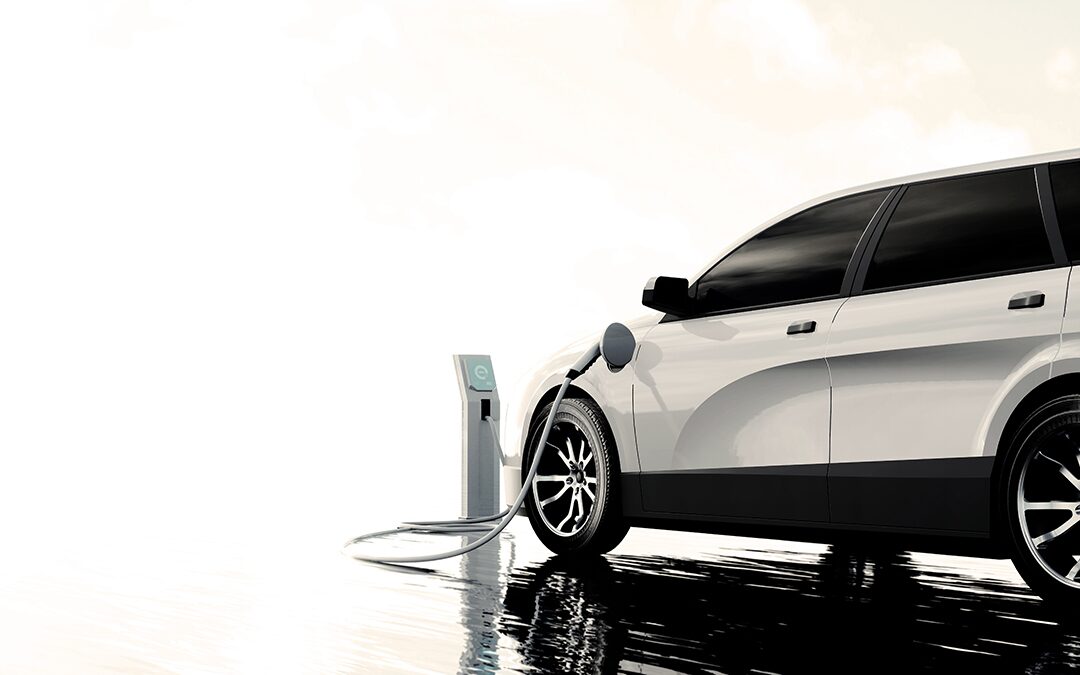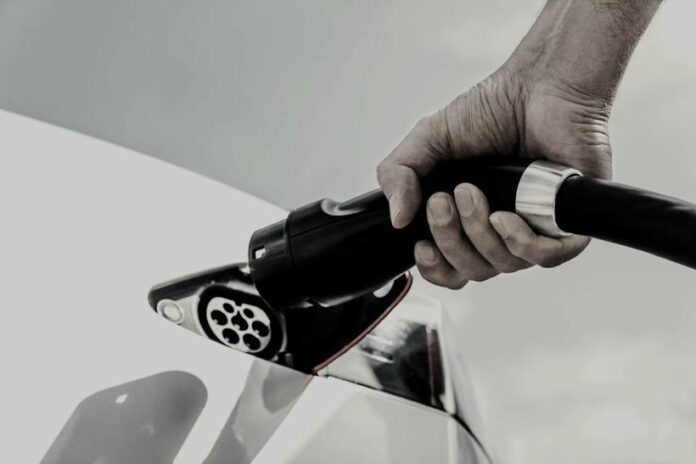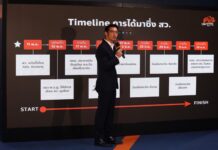| เผยแพร่ |
|---|
จำนวนจุดชาร์จรถยนต์ไฟฟ้าที่ไม่เพียงพอ และค่าไฟฟ้าที่สูงเป็นอุปสรรคหลักในการซื้อรถยนต์ไฟฟ้าแบตเตอรี่ (BEV: Battery Electric Vehicles) สำหรับผู้ที่อาศัยอยู่ในคอนโดมิเนียมหรืออาคารสูงในเขตกรุงเทพมหานครและปริมณฑล (BMR: Bangkok Metropolitan Region) จากผลสำรวจล่าสุดเดือนมิถุนายน พ.ศ. 2565 โดย เอบีม คอนซัลติ้ง (ประเทศไทย)
เอบีม คอนซัลติ้ง เผยว่าโครงการคอนโดมิเนียมทั้งหมดในเขตกรุงเทพมหานครและปริมณฑลที่มีจุดชาร์จรถยนต์ไฟฟ้า EV มีประมาณ 3% ของ นอกจากนี้ ประมาณ 3 ใน 4 ของคอนโดมิเนียมที่มีจุดชาร์จรถยนต์ไฟฟ้านั้นมีจุดชาร์จรองรับได้เพียง 1 หรือ 2 คันพร้อมกันเท่านั้น โดยรวมแล้ว โครงการคอนโดมิเนียมทั้งหมดในเขตกรุงเทพมหานครและปริมณฑล มีพื้นที่สำหรับชาร์จรถยนต์ไฟฟ้าแบตเตอรี่ (BEV) และรถยนต์ไฟฟ้าแบบปลั๊กอินไฮบริดได้เพียงประมาณ 400 คัน

ในปัจจุบัน คอนโดมิเนียมใช้รูปแบบการกำหนดราคาชาร์จรถยนต์ไฟฟ้าที่หลากหลาย โดยการกำหนดราคาตามเวลา (64%) เป็นรูปแบบที่พบบ่อยที่สุด รองลงมาคือการชำระค่าไฟฟ้าตามปริมาณที่ใช้ไป (31%) มีเพียง 1% ที่ใช้รูปแบบการคิดราคาคงที่ซึ่งไม่ได้ขึ้นอยู่กับเวลาหรือหน่วยไฟฟ้า และอีก 4% มีบริการจุดชาร์จรถยนต์ไฟฟ้า แบบไม่คิดค่าใช้จ่าย
โดยส่วนใหญ่แล้ว การชาร์จรถยนต์ไฟฟ้าแบตเตอรี่ (BEV) ในอาคารหรือคอนโดมิเนียมนั้นไม่ได้ถูกอย่างที่คิด มากกว่าครึ่งของโครงการคอนโดมิเนียมในเขตกรุงเทพมหานครและปริมณฑลคิดอัตราค่าไฟฟ้าตามหน่วยคือ 10 บาท ต่อ กิโลวัตต์ ซึ่งมากกว่า 2 เท่าของค่าไฟฟ้าสูงสุดที่การไฟฟ้านครหลวง (กฟน.) กำหนดที่ 4.7 บาท ซึ่งทำให้ผู้บริโภคที่คิดจะซื้อรถยนต์ไฟฟ้าแบตเตอรี่ (BEV) เพื่อลดค่าน้ำมันจำเป็นต้องกลับไปทบทวนการตัดสินใจอีกครั้งเพราะการเป็นเจ้าของรถยนต์ไฟฟ้าแบตเตอรี่ (BEV) ในคอนโดส่วนใหญ่จำเป็นต้องเสียค่าชาร์จรถยนต์ไฟฟ้าที่ไม่ได้ถูกกว่าการเติมน้ำมันในรถยนต์ที่ใช้เครื่องยนต์สันดาปภายใน (ICE: Internal Combustion Engine) ที่ประหยัดน้ำมัน โดยเฉพาะอย่างยิ่งรถยนต์ไฮบริด
การวิจัยพบว่า 90% ของคอนโดมิเนียมมีที่ชาร์จรถยนต์ไฟฟ้าขนาด 22 กิโลวัตต์ ซึ่งมากเกินความจำเป็นสำหรับรถยนต์ไฟฟ้าแบตเตอรี่ (BEV) ณ ปัจจุบันที่ส่วนใหญ่ยังรองรับการชาร์จแบบธรรมดาด้วยไฟฟ้ากระแสสลับ (AC Charging) ได้ไม่เกิน 7 กิโลวัตต์ อีกทั้งราคาของที่ชาร์จขนาด 22 กิโลวัตต์ก็สูงกว่าราคาที่ชาร์จขนาด 7 กิโลวัตต์ ถึง 20%

ขณะนี้ รัฐบาลทั่วภูมิภาคเอเชียเริ่มมีการออกกฎระเบียบใหม่เพื่อรองรับกระแสรถยนต์ไฟฟ้า ที่กำลังเติบโต ยกตัวอย่างเช่น ในประเทศสิงค์โปร์ ได้กำหนด 8 พื้นที่นำร่องที่อยู่ภายใต้คณะกรรมการพัฒนาการเคหะ (HBD: Housing and Development Board) ที่รองรับประชากรในประเทศสิงค์โปร์ถึง 20% นั้น จะต้องมีจุดชาร์จรถยนต์ไฟฟ้า 3-12 จุดต่ออาคารภายในปี พ.ศ.2568 หรือประมาณ 12,000 จุดโดยรวม โดยนโยบายดังกล่าวจะถูกบังคับใช้กับพื้นที่ที่อยู่ภายใต้คณะกรรมการพัฒนาการเคหะทั้งหมดในประเทศสิงค์โปร์ภายในปีพ.ศ.2573 นอกจากนี้รัฐบาลสิงค์โปร์ยังมีการสนับสนุนเงินทุนสูงสุดถึง 50% สำหรับเครื่องชาร์จอัจฉริยะ (Smart Chargers) ทั้งหมด อีกทั้งสิงค์โปร์ยังมีแผนที่จะออกกฎหมายใหม่เพื่อให้แน่ใจว่าอาคารมีกำลังการผลิตไฟฟ้าเพียงพอสำหรับ 15% ของที่จอดรถสำหรับติดตั้งจุดชาร์จ 7.4kW และอย่างน้อย 1% ของที่จอดรถจะต้องเป็นที่จอดรถที่มีที่ชาร์จ EV
ทางด้านประเทศจีน มีเมืองใหญ่หลายเมืองที่ได้ออกกฎหมายบังคับให้อาคารใหม่ติดตั้งจุดชาร์จรถยนต์ไฟฟ้า เพื่อให้เพียงพอต่อความต้องการของประชากร ในขณะที่ฮ่องกงกำลังสนับสนุนการพัฒนาอาคารปัจจุบันเพื่อการติดตั้งโครงสร้างที่รองรับจุดชาร์จรถยนต์ไฟฟ้า โดยให้เงินทุนสูงถึง 4,000 เหรียญสหรัฐต่อพื้นที่จอดรถ สำหรับที่จอดรถทั้งหมด 140,000 แห่งภายในปีพ.ศ. 2571 โดยคิดเป็นมูลค่ารวมสูงถึง 450 ล้านเหรียญสหรัฐ
นอกจากนี้ ผลการสำรวจในปีพ.ศ.2564 โดย เอบีม คอนซัลติ้ง (ประเทศไทย) เกี่ยวกับความสนใจของผู้บริโภคในการซื้อรถยนต์ไฟฟ้า พบว่าข้อกังวลหลักคือ เวลาในการชาร์จที่ยาวนาน (50%) ค่าใช้จ่ายในการติดตั้งจุดชาร์จที่บ้าน (40%) และปัญหาที่พบในการติดตั้งจุดชาร์จที่บ้าน (20%)
คุณ โจนาธาน วาร์กัส รุยซ์ หัวหน้าฝ่ายกลยุทธ์ด้านอุตสาหกรรมยานยนต์ประจำภูมิภาคอาเซียน บริษัท เอบีม คอนซัลติ้ง (ประเทศไทย) จำกัด กล่าวว่า “สถานการณ์ปัจจุบันดังกล่าวเป็นหนึ่งในอุปสรรคสำหรับรัฐบาลไทยในการบรรลุเป้าหมายด้านการใช้รถยนต์ไฟฟ้า และสำหรับผู้ผลิตรถยนต์ที่มุ่งส่งเสริมให้ผู้ขับขี่เปลี่ยนไปใช้รถยนต์ไฟฟ้าแบตเตอรี่ (BEV) เนื่องจากในเขตกรุงเทพมหานครและปริมณฑลประชาชนมากกว่า 1 ใน 3 อาศัยอยู่ในอาคารและอพาร์ตเมนต์ ดังนั้นเพื่อเร่งความคืบหน้าในการเปลี่ยนให้คนไทยหันมาใช้รถยนต์ไฟฟ้า โครงสร้างพื้นฐานของจุดชาร์จรถยนต์ไฟฟ้าในพื้นที่สาธารณะและพื้นที่ส่วนตัวจำเป็นต้องรองรับให้เพียงพอต่อความต้องการของผู้บริโภค”
“เพื่อการพัฒนาแบบยั่งยืนในอนาคต ประเทศไทยควรมีการเริ่มปรับใช้กฎระเบียบเพื่อกำหนดให้อาคารใหม่ติดตั้งจุดชาร์จรถยนต์ไฟฟ้า และดูแลให้มีโครงสร้างพื้นฐานด้านไฟฟ้าที่เหมาะสมเพื่อให้แน่ใจว่าการเติบโตของการปรับใช้รถยนต์ไฟฟ้า จะดำเนินต่อไปตามที่คาดไว้ การชาร์จที่บ้านมักจะเป็นวิธีการชาร์จทั่วไปสำหรับเจ้าของรถยนต์ไฟฟ้าแบตเตอรี่ (BEV) ดังนั้นสิ่งสำคัญคือการอำนวยความสะดวกให้ผู้บริโภคสามารถชาร์จรถยนต์ได้แบบไร้ข้อกังวล”
หากต้องการทราบว่า เอบีม คอนซัลติ้ง (ประเทศไทย) สามารถช่วยสร้างโอกาสจากการขยายตัวของตลาดรถยนต์ไฟฟ้า(EV) ได้อย่างไร สามารถติดต่อสอบถามข้อมูลเพิ่มเติมได้ที่ [email protected]
Lack of EV charging facilities and high charging costs at Bangkok condominiums are a major deterrent to mass EV adoption
A lack of number of charging points and high electricity charges are barriers to buying a Battery Electric Vehicle (BEV) for people who live in condominiums or high-rise buildings in the Bangkok Metropolitan Region (BMR)[1], according to recent research in June 2022 by ABeam Consulting Thailand.
ABeam Consulting found that only about 3% of condominium projects[2] in the BMR provide access to EV charging facilities. Additionally, as many as 74% of condominiums with EV charging points only have facilities to charge 1 or 2 vehicles simultaneously. In total, there are just around 400 spaces available to charge BEVs or plug-in electric vehicles.
Currently, condominiums employ a variety of pricing models, with time-based pricing (64%) the most common, followed by paying for electricity consumed (31%). Just 1% of buildings use fixed price charging which is not dependent on time spent or electricity consumed, and 4% offer free EV charging.
Often, charging BEVs at condominiums is not cheap for residents – the cost at over 50% of projects that charge by electricity consumed is THB 10/kWh, which is more than double the maximum tariff from the Metropolitan Electricity Authority (MEA) of THB 4.7/kWh. These higher rates wipe out much, if not all, of the potential savings owners can typically expect to benefit from by owning a BEV as they become no cheaper to run when compared to fuel-efficient ICE cars, especially hybrids.
The research found that 90% of condominiums are equipped with 22kW chargers whose potential is currently not fully realized due to BEV technology constraints, as the majority of BEVs do not have onboard chargers that support AC charging above 7kW. Typically, 22 kW EV chargers cost about 20% more to buy than 7kW chargers.
Around Asia, governments are addressing the changing EV landscape by implementing new regulations to accommodate growth. In Singapore. Eight Housing and Development Board (HBD) towns accommodating 20% of the country’s population will need to have 3-12 EV charging outlets per building by 2025, which should add up to 12,000 EV charging outlets, and this will be rolled out to all HBD towns by 2030. The government also offers up to 50% funding for all smart chargers. The country also plans to introduce new laws to ensure that buildings have enough electricity capacity for 15% of parking spaces to be equipped with 7.4kW charging points, and that at least 1% of parking places are equipped with EV chargers.
Cities in mainland China have already introduced new building laws to ensure there are sufficient EV charging points, while HK is now supporting an extensive upgrade of existing buildings by funding up to USD 4,000 per parking space to support the installation of EV charging-enabling infrastructure for 140,000 parking spaces by 2028 at a total cost of USD 450m.
A 2021 survey conducted by ABeam Consulting Thailand on consumer interest in buying an EV found that the key concerns for prospective EV owners were long charging times (50%), home charging installation costs (40%) and problems faced when installing home charging points (20%).
“The current situation creates a significant obstacle for the Thai Government to reach ambitious EV adoption targets and for car manufacturers aiming to encourage drivers to switch to BEVs as multi-story buildings and apartments account for more than a third of all registered units within the BMR. To ensure EV ownership accelerates in Thailand the charging infrastructure in public and private spaces needs to catch up,” said Mr. Jonathan Vargas Ruiz, Head of ASEAN Automotive Strategy at ABeam Consulting (Thailand) Ltd.
“For future-proof and sustained growth, Thailand should implement regulations to require new buildings to install EV chargers and ensure the appropriate electrical infrastructure is in place to ensure EV growth continues as expected. Home charging is usually the most common charging practice for owners of BEVs, and it’s important that people who consider buying a BEV will not have problems with it,” added Mr. Jonathan Vargas Ruiz.
To find out how ABeam Consulting Thailand can help identify opportunities for EV expansion, please contact [email protected].







